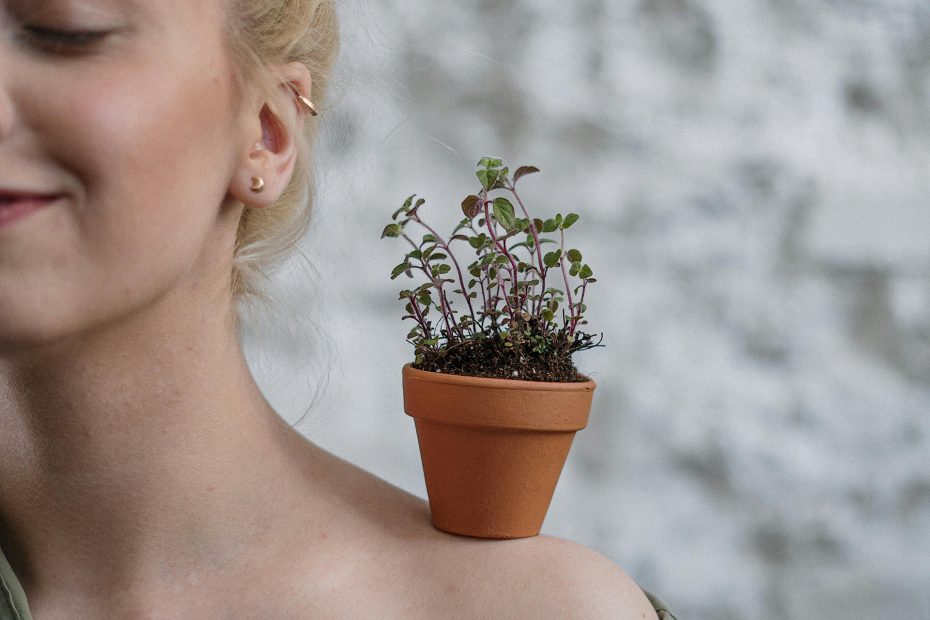When we are happy or feeling a general sense of well-being, we’re experiencing the benefits of serotonin. You may be interested to learn that there is scientific evidence supporting gardening’s natural impact on serotonin levels in our bodies. Would you like to learn more?
Come bloom with me!
What is Serotonin?
Let’s start with what serotonin actually is. In a nutshell, it is classified as a neurotransmitter and hormone. Harvard Medical School describes serotonin as “a hormone responsible for boosting mood, as well as a host of other functions and behaviors.”
Serotonin’s Role in Body Function
- Memory
- Fear and Stress Response
- Sleep and Sexuality
- Digestion and Addiction
- Breathing and Body Temperature

Although serotonin is commonly referred to as the “feel good” hormone, complications can arise when levels are too high or too low. Most of us are familiar with problems associated with low serotonin levels.
Symptoms of Low Serotonin Levels
- Anxiety
- Depression
- Sleep Problems
- Digestive Problems
- Memory & Mood Issues

To naturally increase serotonin without pharmaceuticals, medical resources recommend some simple lifestyle strategies that may help to boost levels and improve well-being. Of course, it goes without saying that your personal physician would be an excellent guide for you on best practices in this this area.
Natural Ways to Increase Serotonin
- Exercise and Sunlight
- Foods containing Tryptophan
- Consistent Sleep and Stress Management
- Meditation / Massage Therapy
- Laughter & Interaction with Pets/Loved Ones
- Gardening

Gardening’s Impact on Serotonin Levels
I will revisit the list above and how backyard gardening touches each point; but I have to start by sharing something with you that I recently learned. And, once I heard it, I’m not able to forget it!
Get Your Hands in the Dirt!
Recent studies show that the bacteria Mycobacterium vaccae, (a non-pathogenic species of the Mycobacteriaceae family), lives naturally in the soil. This soil microbe can activate groups of neurons responsible for producing serotonin. Sustainable Soils Alliance states that “The bacteria Mycobacterium vaccae is absorbed though the skin of the fingers and palms when gardening, triggering a release of serotonin in the brain.”
This news is not only a beneficial bonus for adult gardeners, but also something to consider for children and the elderly. The University of Vermont reports: “We know that exposure to soil microbes, particularly in childhood, helps to build a more robust immune system and resistance to asthma and allergies.” Additionally, The National Library of Medicine published a report in 2020 suggesting that “Gardening could be used as a physical activity for maintaining or improving cognitive health in the elderly.” This study identified serum tryptophan, kynurenine, and serotonin as the bio-markers for improved cognitive ability.
How’s that for “the dirt” on dirt?!
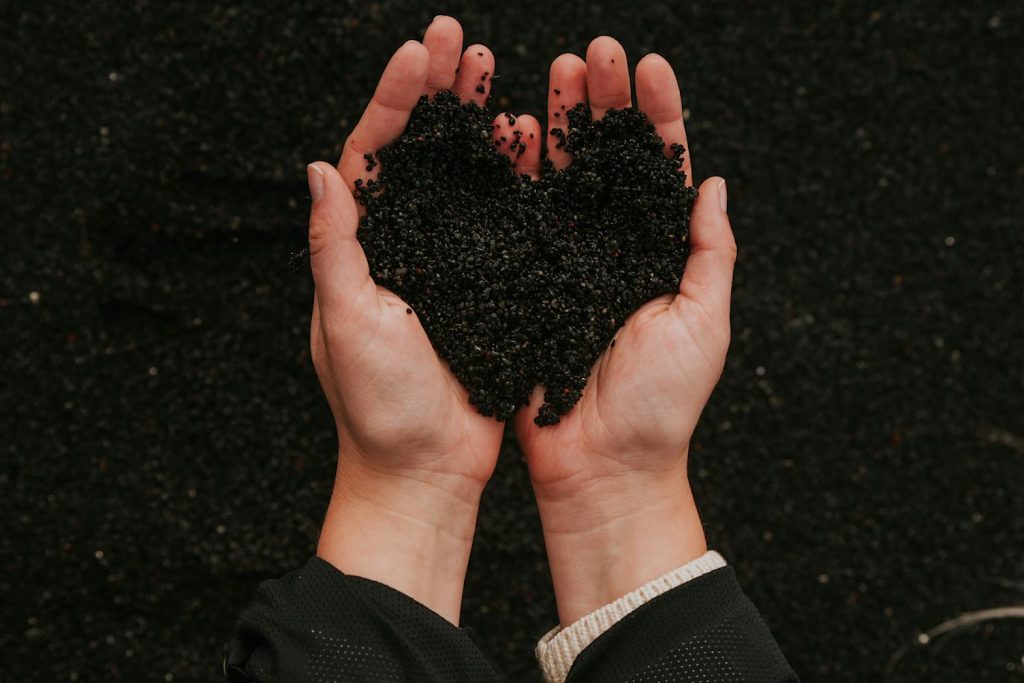
Natural Ways to Increase Serotonin in the Garden
Now let’s revisit that list above on natural ways to increase serotonin without pharmaceuticals. Something to consider is that our lifestyle dynamics have changed a great deal over time. We used to be a society of hunter-gatherers and agrarians. We have significantly decreased our daily physical activity and increased the number of people now experiencing depression. Let’s see how time in the garden can address elevating those feel-good serotonin levels:
Exercise and Sunlight
Gardening can be a moderately intense physical activity, especially when using hand tools. Stretching, pulling, lifting, and extra steps are part of a garden workout. Outdoor gardening also provides sunlight exposure, which increases serotonin levels and benefits those struggling with Seasonal Affective Disorder.
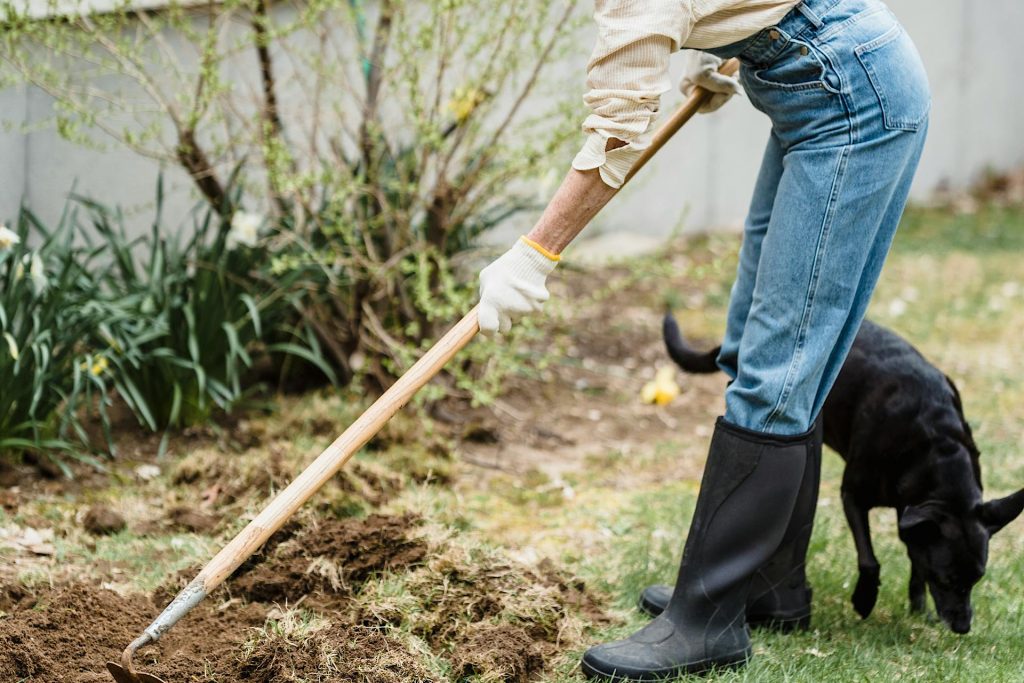
Foods Containing Tryptophan
Leafy greens, peas and broccoli are examples of plant-based sources of tryptophan. Healthy soil also contributes to the nutritional value of the food grown in it. Fruits and vegetables are most nutritious right after harvest and children are more likely to eat what they have helped care for.
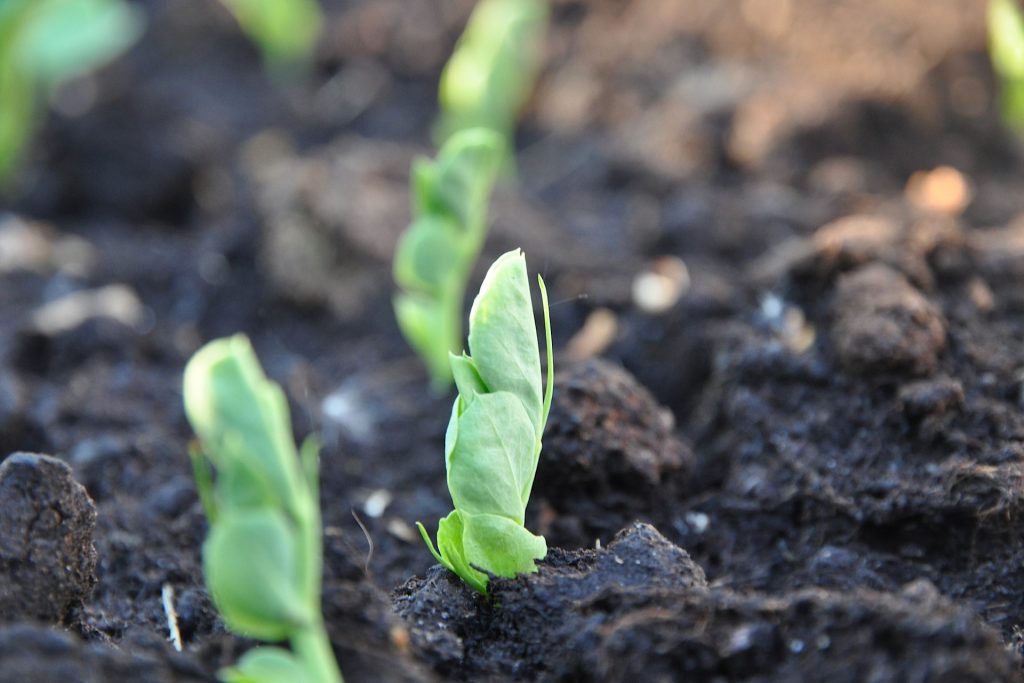
Sleep & Stress Management
Aside from the full body workout that assists in getting a good night’s sleep, time outdoors in the garden each day regulates your circadian rhythm (sleep/wake cycle). Gardening is also has therapeutic benefits by providing a gratifying routine and calming activity to ease stress.

Meditation
According to clinical psychologist, Carla Manly, PhD, we can look at gardening as something she calls moving meditation. She says, “When we’re involved in something like gardening, we are very much able to, in the meditative sense, let go of our thoughts and be focused in the moment on what we are doing.”
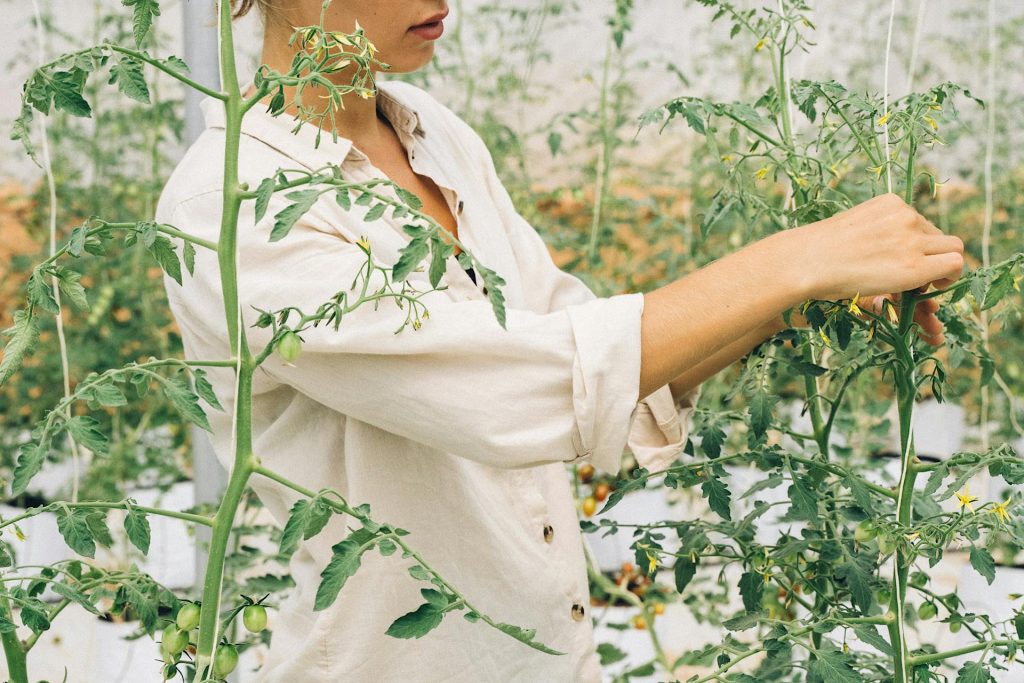
Laughter and Loved Ones
Planning and tending to a garden is a shared activity for everyone in the family. Serving and enjoying the harvest is delicious and satisfying. It’s a kick to surprise a friend or family member with fresh-grown produce. The garden is also a beautiful space to start/end the day with a cup of tea or coffee and a loved one.
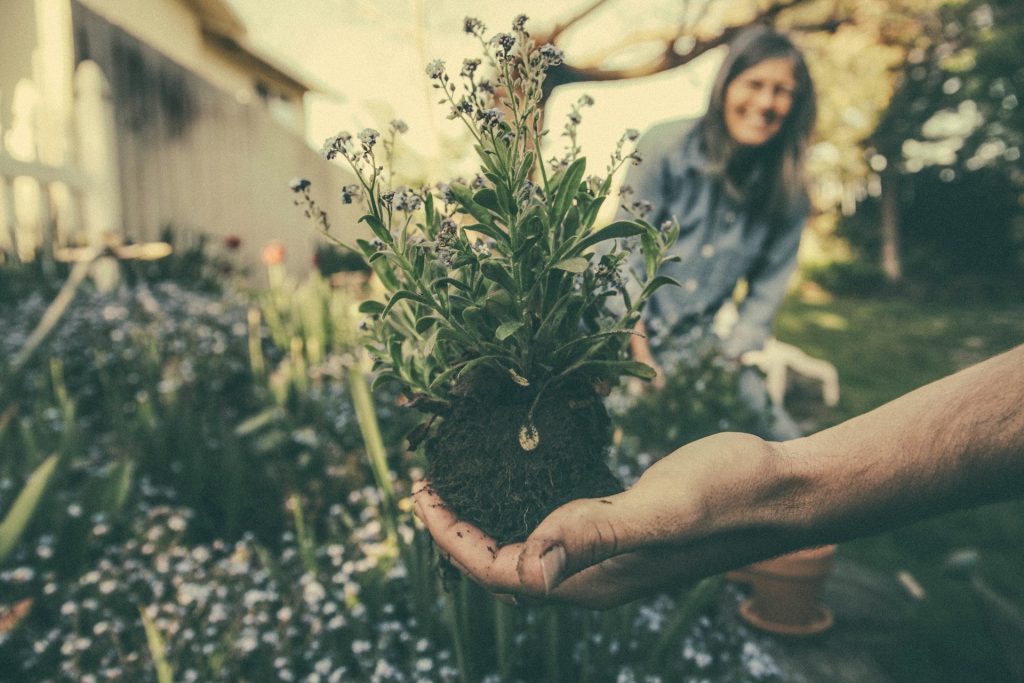
Bloom Where You’re Planted
You don’t need to own a farm or change careers to become a homesteader to experience gardening’s feel-good magic. If space is limited, you can grow houseplants on your windowsill, start a patio container garden or join up with a local community garden. Even visit the farmers market on the weekend for garden inspiration. Just get outside and explore!

Resources:
If you’d like to dig deeper into gardening’s impact on serotonin levels, I’m sharing some links from reputable resources:
- Soils and Public Health (Sustainable Soils Alliance)
- The Profound Health Benefits of Gardening (University of Vermont)
- Physiological Responses During Soil Mixing (American Society for Horticultural Science)
- Gardening Program Improves Cognitive Ability (National Library of Medicine)
- Digging in the Dirt Really Does Make People Happier (Forbes)
Links:
If you enjoyed this article, here are some other links on this blog that might interest you.
